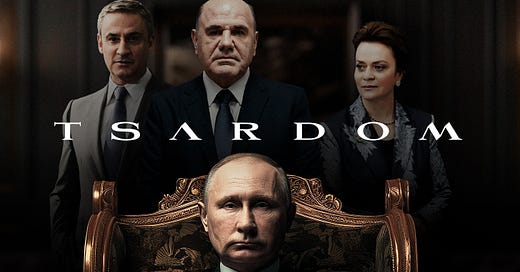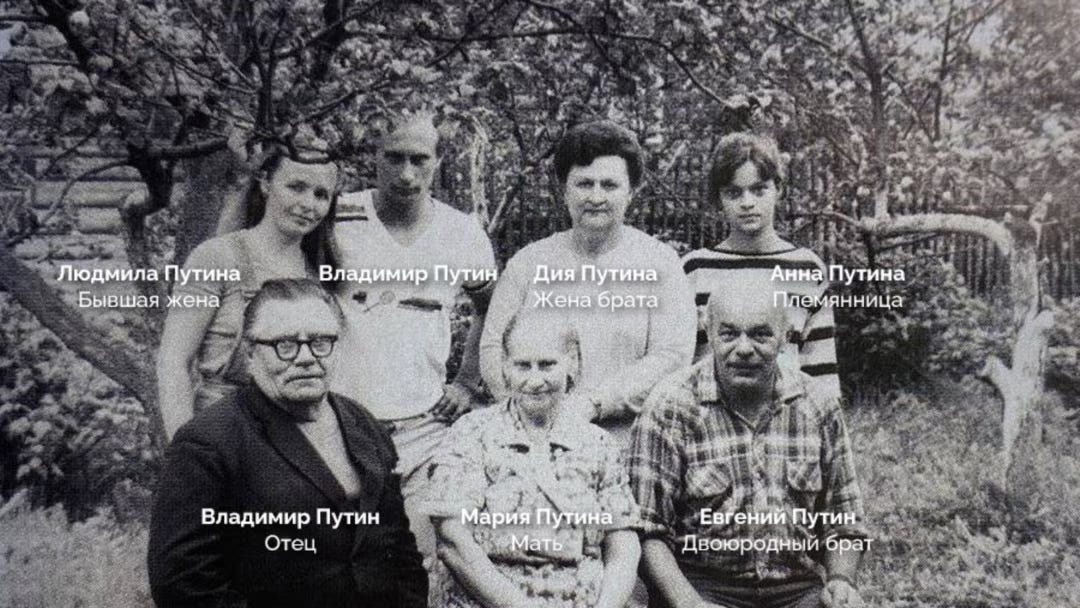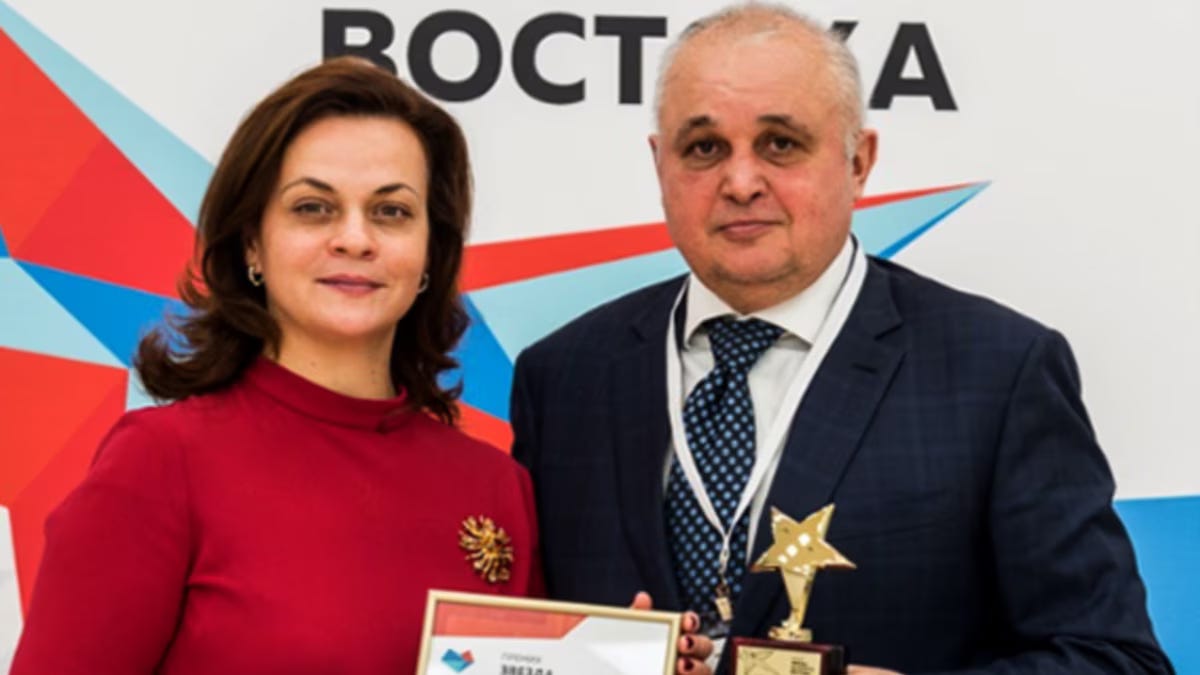Vladimir Putin has formed a new government, reappointing Mikhail Mishustin as Prime Minister. In a significant move, for the first time, a Putin’s family member has joined the cabinet: Sergei Tsivilev, the husband of president's niece, has been named Minister of Energy. This highlights the increasing role of family clans in the governance of Putin's Russia."
Meet the Princess
In recent months, Russia has buzzed with discussions about an upcoming elite change. President Vladimir Putin has often stated that the country's new elite should comprise veterans from the so called 'Special Military Operation' in Ukraine. This idea sparked fears among current officials, fueling rumors in Moscow of an impending property redistribution and a rise in power of the 'Donbass clan,' whose influence grew during the war. However, the newly formed government contains no members from this so-called 'new military elite,' signaling a trend where the elite may grow even closer to Putin's family circle.
Back in early April, Putin established the state foundation 'Defenders of the Fatherland,' tasking it with supporting former soldiers, officers, and private company mercenaries who served in Ukraine. This foundation is set to become the richest charitable entity in the country, managing all budgets designated for supporting veterans and their families.
And on April 6, Putin met with the new head of the foundation, 52-year-old Anna Tsivileva. Normally, Putin rarely meets with officials in person - even with the government he speaks via video link. A one-on-one meeting and conversation, especially if it is shown on all national TV channels, is a sign of special trust. It is a signal to everyone that Tsivileva and her foundation are a matter of great national importance.
Anna Tsivileva (Putina) is a rising star in Russian politics. She is Vladimir Putin's niece - the daughter of his cousin Yevgeny.
Sitting: Putin's father, Putin's mother, his cousin Yevgeny. Standing: Putin's ex-wife, Lyudmila, Vladimir Putin, cousin's wife, niece Anna (married - Tsivileva)
Yevgeny Putin, Anna Tsivileva's father, died two months ago, in early March 2024, when he was 91 years old. But his daughter began her high-powered career much earlier. In 2012, she and her husband, former military officer Sergei Tsivilev, got a large coal company Kolmar. It is not known how they bought it - perhaps, it was just a wedding gift from the president. Thanks to this, the husband and wife Tsivilevs became millionaires in the following years. But that was just the beginning.
In 2018 Sergei Tsivilev was appointed governor of one of the richest natural resource regions in Russia - the Kemerovo region.
Anna Tsivileva became known in business circles much earlier, before her husband became the head of the region. According to acquaintances, thanks to her personal access to the president, she began to create her own financial and industrial group about ten years ago. And at first her role was minor - she was only a junior partner of Gennady Timchenko, a longtime friend of Putin and one of the oligarchs closest to him. Over time, however, she became known as an independent figure.
Anna Tsivileva and her husband Sergei, new Russian Minister of Energy
At the same time, Tsivileva lobbied for her husband's promotion on the career ladder. Apparently, during her last meeting with Putin, she discussed not only her foundation, but also her husband's employment. And successfully - he is now Minister of Energy.
In the summer of 2022, EU and UK sanctions were imposed against Tsivileva and her husband - the comments said that they used their kinship with the president for personal enrichment.
According to my sources, Tsivileva has made no secret of her plans to expand her own business and does not plan to limit herself to one company that mines hard coal. Her husband's new position, and her new position, head of the “Defenders of the Fatherland” Foundation, is just the shortcut to unlimited budgets. From now on, however, the war in Ukraine becomes a tool of family enrichment.
Promotion of relatives is not an exception, but a rule of Putin's personnel policy. For example, Tsivileva's own brother, Mikhail Putin, is deputy chairman of the board of Gazprom. However, according to sources, Mikhail Putin is not an ambitious man, he is quite satisfied with the money he receives at Gazprom. His sister, on the contrary, is extremely active.
Two Princes Rise
In previous episodes of my series, I've discussed how the children of Putin's closest associates and top Russian officials are advancing in their political careers. True to my earlier predictions, Dmitry Patrushev, son of former FSB director and current overseer of special services Nikolai Patrushev, has climbed higher in the ranks. Previously serving as the Minister of Agriculture, he has now been promoted to Deputy Prime Minister.
Another 'prince,' Boris Kovalchuk, son of oligarch Yuri Kovalchuk, is also on the rise. Just two months after being appointed to a lesser role in the presidential administration, he is expected to be named head of the Accounts Chamber next week. This powerful watchdog has the authority to audit the activities of any state corporation and major business.
As the nation echoes with talk of traditional values and imperial restoration, there's a tangible return to the ancient norms reminiscent of the Romanov era. Family members of the ruler are gaining control over entire industries and corporations simply by virtue of their lineage, while the populace is seemingly expected to merely applaud. This is a revival of the very old traditions of the 18th or 19th centuries, about which Russian propaganda speaks with such subservience.







